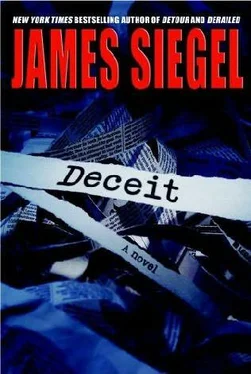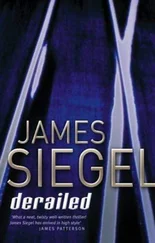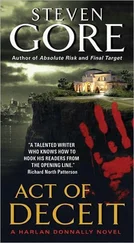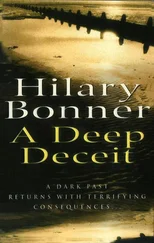It was a man.
He was half a football field away.
Standing maybe twenty yards from the battered T-bird I’d used to get here. I didn’t see another car, which made me wonder how he’d made it all the way out here. I was wondering something else. What he was doing here.
At first, I worried it might’ve been the plumber I’d last seen sauntering up my front walk with a bag in his hand.
Him.
It wasn’t.
This man was clearly older. If I saw him at the local Sears, or passed him at night strolling down Redondo Lane, I wouldn’t have given him a second thought. Not here.
I shot up, taking two steps back in an effort to gain my balance, which seemed to have been altered simply by his appearance.
He turned around and began walking away.
“Hello?” I shouted in his direction.
He kept walking, maintaining the same steady pace, a man on his morning constitution, a man who clearly hadn’t heard someone shouting at him to stop.
I hustled after him.
As I drew closer, he appeared even older than I’d first imagined. He had an aura of quiet dignity about him-even with his back turned. It might’ve been 100 degrees out here, but he was wearing a natty blue sport jacket with thin gray pinstripes. No hiking boots or tennis shoes, but polished black shoes that nearly gleamed. An old-fashioned fedora sat at a slight angle on his head.
“Excuse me,” I said, a little out of breath. “Excuse me, could I talk to you a sec?”
He stopped. And turned.
Late seventies, I guessed, maybe eighties. His hair, what I could see of it, was steely gray and trimmed short, just this side of a crew.
“Yes?” he said, as calmly and politely as someone asking you for the time.
“I was just curious what you’re doing out here?”
“Funny,” he said. “I was wondering the same thing about you.” He had what could only be referred to as piercing eyes-that striking shade of blue that nearly causes you to reach for your sunglasses.
“Tom Valle,” I said, “from the Littleton Journal .”
“Ah. You’re a reporter?”
I had the impression he was sizing me up-the uncomfortable sensation of being inside an MRI machine, innards intimately exposed to meticulous examination.
“Doing a story on what? This place ?” he asked.
“Yes. On the Aurora Dam Flood.”
“I see.” He nodded, took his hat off, and wiped his brow with a clean white handkerchief that mysteriously appeared out of his jacket pocket.
“You should wear one,” he said, refixing his hat and sticking the handkerchief back in his pocket. “Sunstroke can be unforgiving.”
I believed him. I was starting to feel a slight wooziness, like purple haze without the fun.
“The flood,” he said. “It was a long time ago.”
“Fifty years,” I said; I could feel a rivulet of sweat trickling down the center of my back. “So, what brought you out here?” I was going to ask him how he’d got out here as well, but I’d noticed the front grille of a car parked behind one of the rusting steel structures about forty yards away.
“Curiosity,” he said.
“You’ve read about the flood?”
“Yes.”
“Are you from around here?”
“ Here ? I don’t think anyone’s from around here. Now .”
“I don’t mean Littleton Flats. I meant from around the area?”
“No. I’m not from this area.”
“Oh. Just a flood buff, then?”
“Well,” he said, “I was here once.”
“Here? You mean Littleton Flats?”
“That’s right.”
“Before the flood?”
He nodded. “Not much left, is there?”
“No. What was it like?”
“ Like ?”
“The town?” I’d read a lot about the destruction of Littleton Flats, almost nothing about the town itself. Here was someone who’d walked its streets, who might’ve passed Belinda and Benjamin on their way to breakfast in the Littleton Flats Cafe.
“It was like any town. Entirely ordinary. Families, shops, houses, backyards. Just a town.”
“What year was that?”
“Year?”
“The year you visited?”
“ 1954.”
“That was the year it happened.”
“Yes.”
“And you’ve never come back? Till now?”
He shook his head. “No. I was passing through and I thought to myself, why not?”
“It must be kind of eerie for you.”
“Eerie? I would think it would be eerie for anybody. All ghost towns are.”
Yes, he was right. The soft wind whistling through the rusted steel sounded like the angry whispering of ghosts.
“A terrible thing happened here, didn’t it?” the man said. “You can still feel it.”
I reached for the pad and pen in my pocket. “Can I ask your name? You wouldn’t mind being quoted, would you? For my story.”
“I’m afraid I have nothing much to contribute. Just a flood buff, like you said.”
“But you were there.”
“Yes, I was here. So were a lot of people.”
“A lot of people don’t like talking about it. In Littleton, anyway. You don’t seem to mind.”
He looked down at his polished black shoes, both feet ramrod straight, making me wonder if he’d ever been in the military. “Okay,” he said, looking up. “My name’s Herman Wentworth.”
I scribbled it down. “May I ask, Herman, what you used to do?”
“I’m a doctor,” he said. “Of course, I don’t practice anymore.”
Funny, I thought. That uncomfortable feeling of being examined when I’d first said hello to him. It hadn’t been an accident.
“Were you in private practice?”
He shook his head. “I was an army doctor.”
So he had been in the military. “The army, really? Where were you stationed?”
“Oh, everywhere. At one time or another. Pretty much all over the world. I started out in Japan.”
“Japan, huh? When would that have been?”
“At the end of the war. Right after the surrender.”
“Tokyo?”
“No,” he said. “Different part of the country. I was with the 499th medical battalion.”
“Treating wounded soldiers?”
“Treating everybody. Japanese, too. The Hippocratic oath doesn’t delineate between friends and enemies, just those you can save and those you can’t.”
“So, at some point in 1954, you ended up here?”
“For a day.”
“Did you know someone in Littleton Flats?”
He shook his head. “No, I was passing through. Just like today.”
I wondered where someone needed to be going in order to pass through Littleton Flats. It wasn’t exactly the crossroads of the world. More like its dead end.
Then he answered for me.
“I was transferred to San Diego. I wanted to take in some desert scenery. I was born up north-Minneapolis. You don’t see a lot of desert up there.”
“And so you stopped here for one day?”
“That’s right. Just one day.”
“What time of year was it, do you remember?”
“Afraid I don’t.” He repeated the ritual of minutes before, pulling that handkerchief out of his pocket, removing his hat, and wiping the sweat off his brow.
The wooziness I’d felt before had worsened. A dull headache had settled in the middle of my forehead.
“Do you remember anything in particular?”
“About what?”
“The town?”
“It was a long time ago. I told you-it was just a town.”
“Where were you when you heard?”
“ Heard ?”
“About the flood?”
“Sorry,” he shrugged. “I don’t remember.”
“Okay,” I said. “Thanks. I appreciate you answering my questions.”
“I don’t see how I was any particular help.”
“You were there. It’s nice to meet someone who saw it before it all washed away.”
Читать дальше












